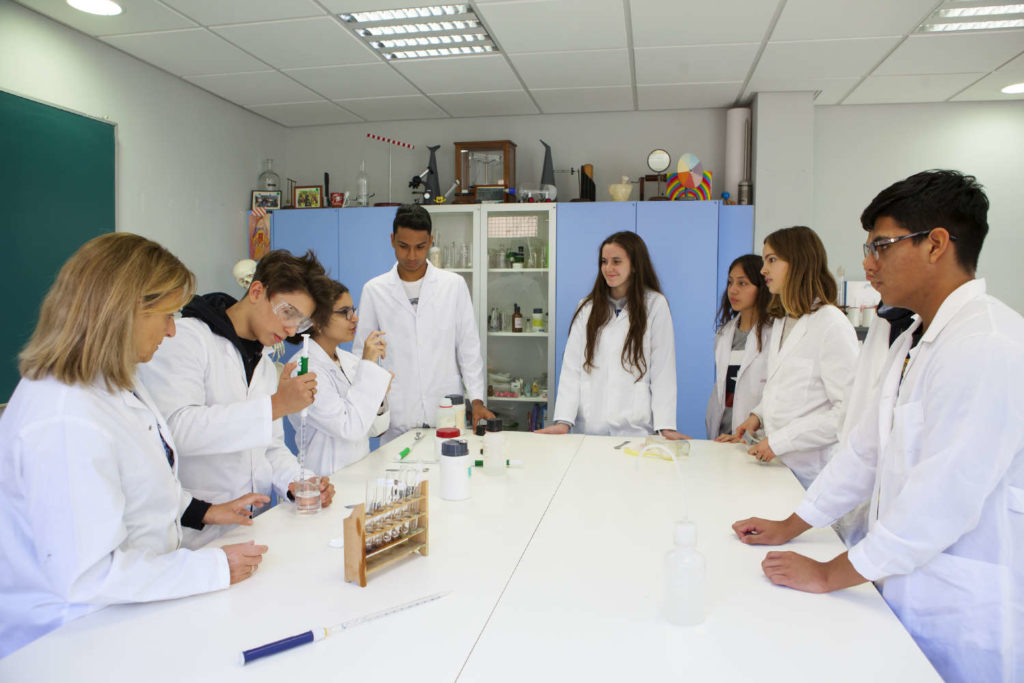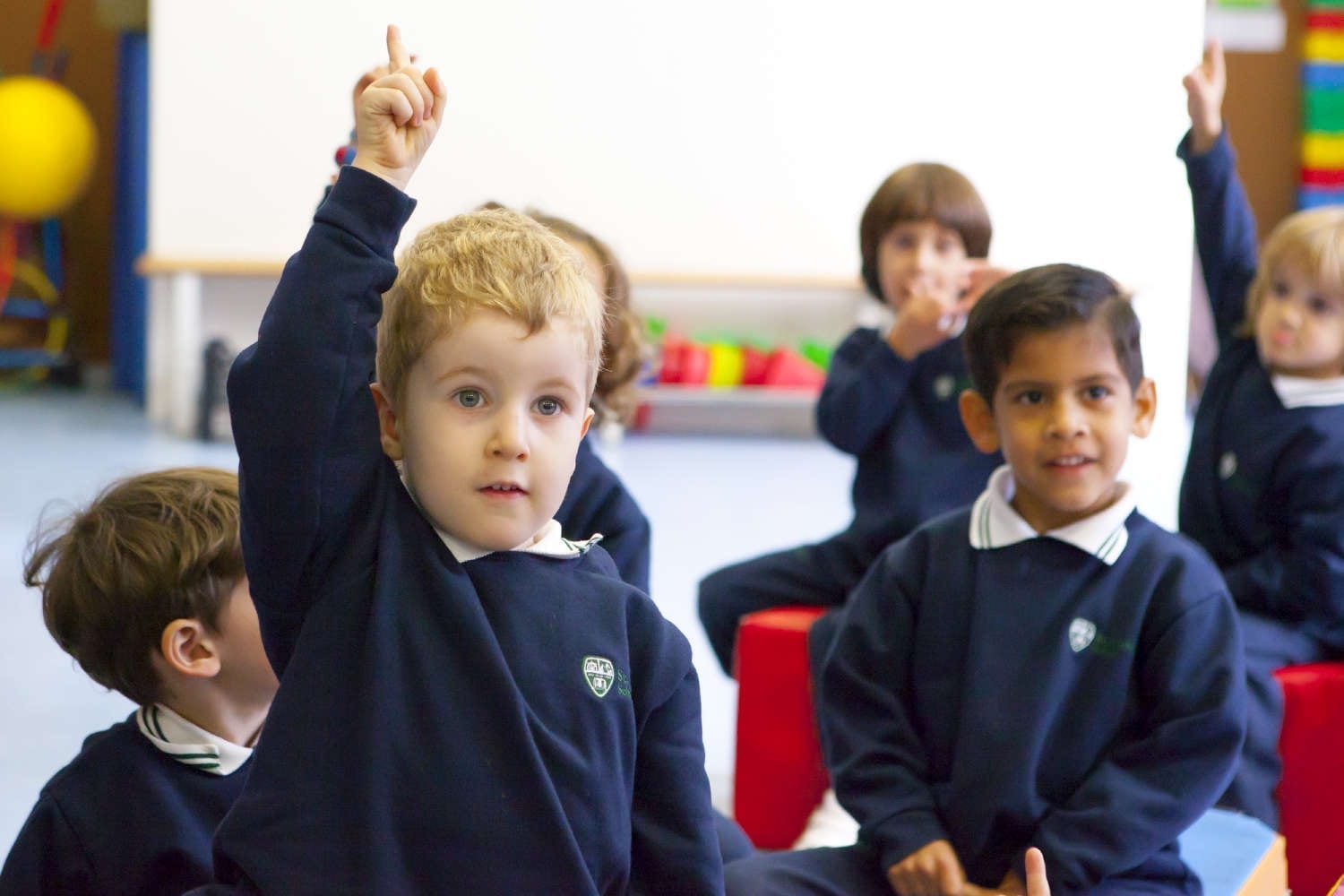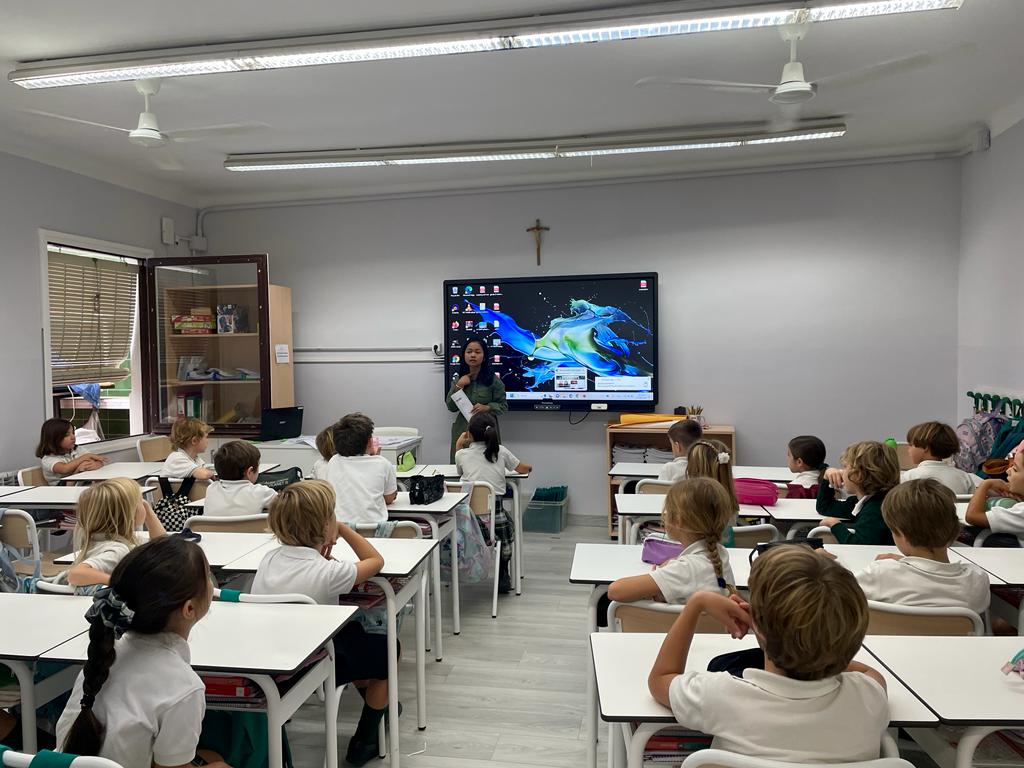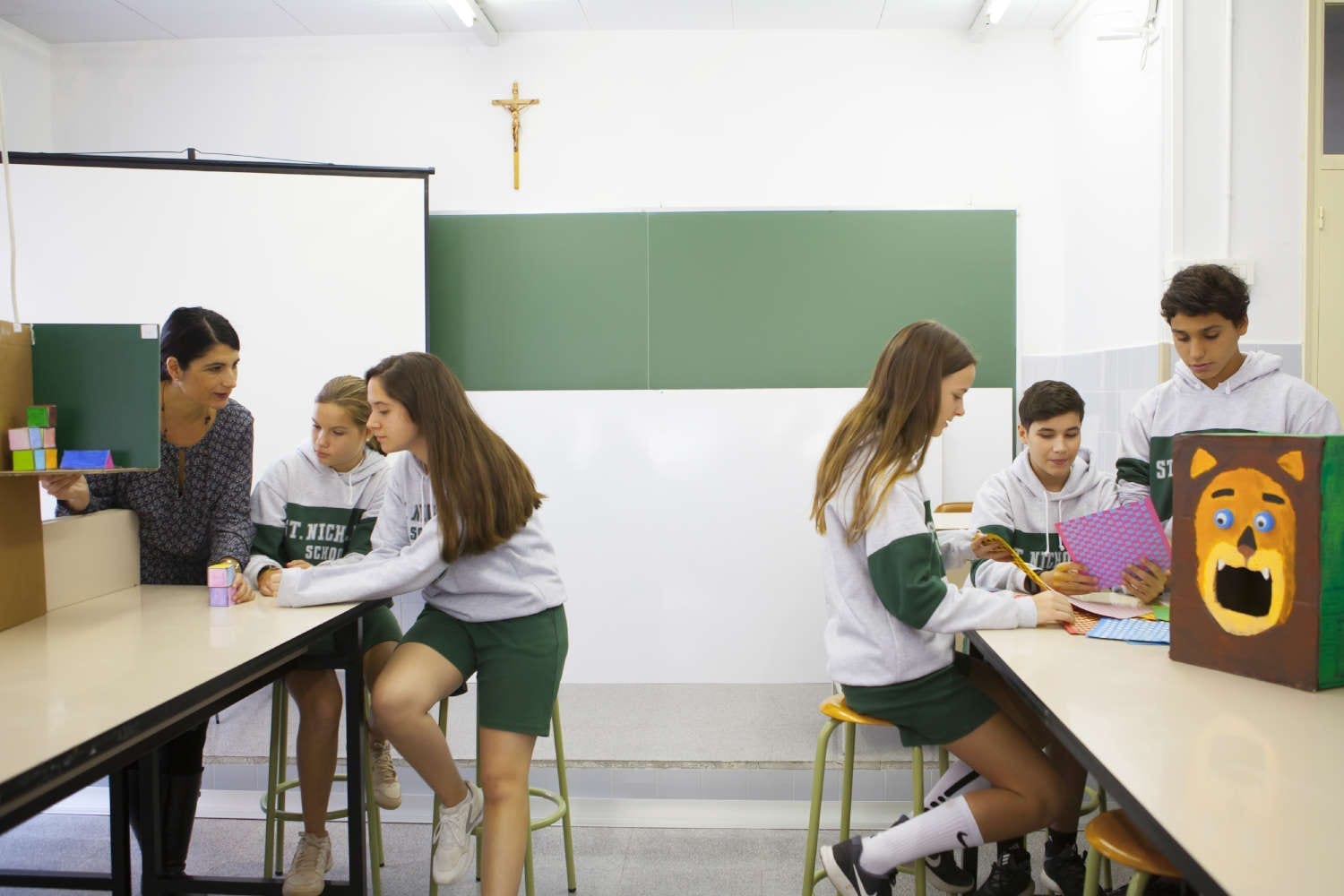Kindergarten
Kindergarten is vital for the development of the students on an emotional, affective, linguistic, social and cognitive level. That is why we work to offer them a familiar and welcoming environment in which they feel welcome and safe, while we offer a wide range of experimental, manipulative and cognitive possibilities, with the aim of awakening their interest in the world of knowledge, taking especially in mind creativity, linguistic immersion, psychomotricity and music. We want to build a solid foundation for future stages.
Our Infant stage is characterized by our trilingual program. Through play, music and art, our students learn to communicate in English and have a positive attitude towards other cultures and the acquisition of other languages. Our goal is for our students to make a natural use of English, while continuing to develop their skills in the other mother tongues. To achieve this, the immersion in English covers half of the school schedule.
Read more... At Saint Nicholas School we understand that each student is a true protagonist of their knowledge, while teachers are a guide for their development and training. In order to promote the individuality of each one, from the Psychopedagogical Department we implement the Multiple Intelligences Program, to discover and accompany the student in his learning process, which is unique and different for each individual . Our familiarity, one of the main axes of our project, will be made more marked, if applicable, during the Children’s stage, promoting a close relationship between family and School, in order to accompany the student in his process of Adaptation and growth, and to have special care for their emotional development. Read more...
Primary Education
Like in the previous stage, our pedagogical project is lies on a work methodology that is based on the knowledge of multiple intelligences, and on the need to develop emotional intelligence in the student.
In Primary Education we are working with the skills and competences beyond the area knowledge that we know our students will need in the future, such as teamwork, responsibility, critical thinking, or the ability to lead and take initiative, and with the social conscience.
Likewise, we accompany them to enhance their physical and intellectual abilities, and to develop other values and habits that will help them in their development throughout the school years, such as study techniques and behavior patterns in the school environment.
During the Primary stage, the longest of all schooling, the foundations of the personality and values of each of our students will be laid, for the later stages. That is why we will pay special attention to the development of each of our students, from an academic, human and spiritual perspective.
Secondary Education
During the Secondary stage we prepare our students for their path to the Baccalaureate. It is a stage in which we will focus on forming them in responsibility and autonomy, as well as in the critical spirit towards themselves and towards others and the events that surround their life and social reality.
The years of Secondary will be vital in strengthening the study and work habits that the students will have acquired during the Primary Stage. It is therefore, a valuable moment to continue training in self-discipline with art and sport, and to consider both skills as an alternative to their leisure time, since the foundations of future habits are laid for life during the teenage years.
In the same way, we motivate our students in the consolidation of social responsibility through our Social Participation Program. A well as in the Primary stage, the School is a guide in the initiation of the solidarity spirit and in the way to channel it. In Secondary we aim for the students to do as a result of their own personal commitment and motivation, while we help them in the materialization and coordination of personal and group initiatives.
Read more... Read less...
Due to the requirements of the academic curriculum, in the Secondary stage, students must take their first decisions regarding the subjects and itineraries that will shape their future studies. It is a moment in which we will guide and accompany them in this orientation through our Educational Mentoring process and the Psychopedagogical Department self-knowledge tests. Boths actions are part of the Augere Program. The Mentoring process is a conversational practice between the mentor and the mentee (student), which offers individual resources so that students successfully face their training and the decision-making related to academic transitions and their professional future.
/show_more]
Baccalaureate

The main objective during Baccalaureate is to guide our students in their future personal and professional projection, and guide them on their concerns related to their vocation and future studies.
We understand that Baccalaureate students are facing one of the most important decision of their lives: choosing university studies, a decisions that requires the maturity, security and self-knowledge that not all students have.
Therefore, one of our main objectives is to work on this aspect with the help of two different tools. First, with our Mentoring Programme, which offers students resources and tools to face educational challenges and responsible decision-making concerning academia and career matters. On the other hand, we promote personal development through individual coaching sessions aiming to support successful decision-making and other important life skills.
Our aim is that students find the best university degree for them having in mind their wishes and professional vocation, to have students in the present with a passion and vocation to be part of the future, willing to contribute to a better world.
At Saint Nicholas School our students can choose among the following Baccalaureate itineraries:
- Technology
- Science
- Biomedical branch
- Business
- Social branch
- Humanities
The subjects chosen for each of these modalities have been designed to allow access to the greatest number of degrees, both in Catalan universities and nationwide.
In addition, we offer our students the Dual Baccalaureate, a Diploma that can be taken at the same time as the National Baccalaureate studies, with subjects that are studied online and entirely in English.
The advantage of taking the Dual Diploma is that students will obtain two degrees simultaneously:
- The LOMCE Baccalaureate
- The North American Baccalaureate (High School Diploma)
This High School Diploma is recognized in all the states of the US, and in its universities.
Students who choose to take the Dual Diploma, will have a tutor in the School who will accompany them in their studies and presentation of work, and a tutor assigned by Academica International Studies, the entity in charge of making the validation of the North American Baccalaureate.
At the end of the Baccalaureate, all our students will live the professional adventure of the Work Experience, a project framed within our Pre-University Program, thanks to which they will experience a two-week stay in a company or institution in which they will be direct witnesses of the profession they want to access through their university studies. The Work Experience involves a real schedule, assigned tasks, and a mentor who will follow up and give feedback on their “work” once the practices are over.
In summary, when finishing the last stage of schooling, all Saint Nicholas students seek to improve themselves every day to be the best version of themselves in their work, in their closest environment, and in society. That is, happy students, prepared for life and motivated to improve the world, which are characterized by the following features:
- They know themselves, have a passion for life and base their decisions on reasonable and balanced goals.
- Work as a team, know how to defend an idea in public and manage their emotions.
- Are intellectually motivated and are critical and creative thinkers.
- Are supportive and the service to others is part of their daily lives. They are committed to the world around them.
- They have been in contact with the art world, where they excel in some discipline, and practice at least one sport with assiduity.
- Master three or more languages and have a good mental structure.
- Know other cultures, have had international experiences and have passed international external exams.
- They are happy, with Christian values, and a desire for personal growth and commitment to the world.
- Facilities




